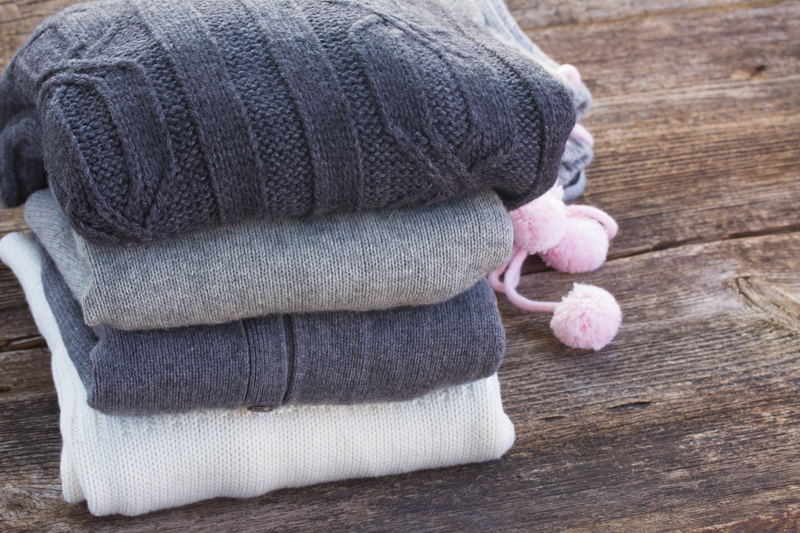Enhance Your Recycling Skills: The Ultimate Home Guide
Ready to step up your sustainability game and make a real difference at home? This comprehensive guide will show you how to maximize your recycling habits, reduce waste, and support a cleaner environment right from your doorstep. Enhancing your home recycling skills isn't just about separating glass, plastic, and paper--it's about making smart, sustainable choices every day. Whether you're a beginner or looking to refine your eco-friendly lifestyle, this ultimate recycling guide for home has you covered!
Why Focus on Recycling at Home?
The average household is a major contributor to landfill waste and environmental pollution. By improving your recycling skills at home, you can:
- Reduce landfill waste and conserve natural resources.
- Cut down on energy usage required to create new products from scratch.
- Protect wildlife from harmful packaging and pollutants.
- Save money by reusing and repurposing items where possible.
Changing habits at home is a powerful first step toward a healthier, more sustainable planet.

The Fundamentals of Recycling: What You Need to Know
Before you can improve your recycling game at home, it's essential to understand what can and cannot be recycled. Recycling rules can be confusing and even differ by region or municipality.
Know Your Recyclables
- Paper: Newspapers, office paper, cardboard, magazines (avoid those with plastic coatings).
- Glass: Bottles and jars that are clean and free from food residue.
- Plastic: Bottles, containers, and packaging marked with recycling symbols (check local guidelines for accepted types, usually #1 and #2 are widely accepted).
- Metals: Aluminum cans, tin cans, and clean foil.
Remember: Not all plastics are recyclable! Check for the recycling number and find out which types your municipality accepts.
Items You Should Not Recycle
- Greasy pizza boxes with food residue
- Plastic bags (unless specifically collected; recycle separately at dedicated drop-offs)
- Styrofoam products
- Ceramics or pyrex glass
- Diapers and sanitary products
- Electronics (require special e-waste recycling)
Contaminated recyclables can ruin entire batches of recycling, making it crucial to clean and sort your items correctly.
How to Enhance Your Recycling Skills at Home
Looking to upgrade your home recycling habits? Follow these in-depth tips to transform your household's impact:
1. Set Up a Simple and Efficient Home Recycling System
Organization is key to successful recycling at home. Here's how to get started:
- Label bins for paper, plastic, glass, and metal--make it foolproof for everyone in your home to sort waste properly.
- Place your home recycling station in a high-traffic area (such as the kitchen or garage).
- Consider using stackable bins or color-coded containers for easy sorting and collection.
- Create a recycling cheat sheet and post it above your bins for quick reference.
2. Clean and Prep Your Recycling
Food and liquid residue contaminates recycling batches, making materials unrecyclable. To enhance your recycling efforts:
- Rinse bottles and containers before tossing them into the bin.
- Remove caps and lids (they can often be recycled separately, depending on material).
- Flatten cardboard boxes to save space.
3. Avoid Wishcycling
Wishcycling--putting non-recyclables into the recycling bin in the hope they'll be accepted--is a top mistake that undermines home recycling. When in doubt, check your local recycling guidelines or throw the item in the trash if it's not explicitly accepted.
4. Upcycle and Repurpose at Home
Go beyond traditional recycling by finding creative new uses for items before throwing them away:
- Turn glass jars into storage containers or vases.
- Repurpose cardboard boxes for organizing drawers or making kids' crafts.
- Use old T-shirts as cleaning rags.
- Transform tin cans into plant pots or desk organizers.
This way, you extend the life of household items and reduce your need for buying new products!
5. Compost Organics and Yard Waste
Food scraps and yard cuttings should not go into the landfill. Organics turn into methane, a potent greenhouse gas, when they decompose without oxygen. Instead:
- Set up a compost bin for fruit and vegetable peels, coffee grounds, tea bags, yard clippings, and certain paper products.
- Don't compost meat, dairy, or oily foods, which can attract pests.
- Use the resulting compost to fertilize your garden or houseplants.
Composting is a powerful way to boost your home recycling skills, enrich your soil and cut waste dramatically!
6. Recycle Electronics and Batteries Responsibly
Electronic waste (e-waste) is a major environmental concern. Toxic substances can leach from improperly discarded electronics. Enhance your household recycling skills with these e-waste tips:
- Find certified e-waste recycling centers or retail take-back programs for computers, phones, and small appliances.
- Keep spent batteries out of regular trash--recycle them at designated drop-offs (even car batteries!).
- Erase all personal data from devices before recycling.
Never toss electronics or batteries into the regular bin--protect your family and the environment!
Advanced Tips to Master Home Recycling
Stay Updated with Local Recycling Guidelines
Recycling rules frequently change. Stay in the loop by visiting your municipal website or signing up for recycling newsletters. Some regions now accept more plastics, while others focus on eliminating contamination. Being informed is key to optimizing your home recycling program.
Participate in Community Recycling Initiatives
- Join local clean-up days or recycling drives for hard-to-recycle materials, such as paints, mattresses, or textiles.
- Support bottle deposit programs and return eligible bottles and cans for refund and proper recycling.
- Share tips and resources with neighbors to foster a recycling-friendly community spirit.
Shop Smarter to Reduce Waste
- Buy products with minimal or recyclable packaging.
- Bring reusable bags, containers, and water bottles wherever you go.
- Choose products made from recycled materials to close the recycling loop!
- Support brands with strong environmental policies and transparent sourcing.
Every purchase is a vote for a healthier planet.
Educate Your Family and Friends
- Teach children the basics of recycling: Make sorting waste fun and informative.
- Lead by example: Consistently practice good recycling habits at home.
- Share recycling successes and creative upcycling projects on social media to inspire others.
A culture of recycling starts at home but can ripple out into your local community and beyond!
Common Recycling Myths Debunked
- Myth: "If the bin isn't full, it's not worth recycling."
Fact: Recycle as soon as you can--every little bit makes a difference. - Myth: "Recyclables don't need to be cleaned."
Fact: Dirty items can spoil entire loads of recycling. Always rinse before recycling! - Myth: "All plastics are equal."
Fact: Only certain plastic types (#1 and #2) are widely accepted. Check before recycling! - Myth: "Recycling uses more energy than it saves."
Fact: Recycling saves significant energy compared to creating products from raw materials.
Get the facts right to enhance your home recycling skills and encourage others!
Helpful Recycling Resources and Tools
- Earth911: Offers searchable databases for recycling centers and guides on different materials.
- Your local government website: Provides up-to-date recycling regulations and special event information.
- Mobile apps (such as iRecycle or Recycle Coach): Help identify recyclables and local drop-off sites.
- Social media groups: Join local eco-communities to share experiences and tips.
Leverage these tools to stay engaged and maximize your recycling impact at home.

Frequently Asked Questions about Home Recycling
Can I recycle pizza boxes?
Only if they are clean and free from food grease. Otherwise, tear off the clean parts for recycling and compost or trash the rest.
What do I do with plastic bags and film?
Most curbside programs do not accept plastic bags or film. However, many supermarkets have dedicated bins for bag recycling. Collect and drop them off instead of placing them in your home recycling bin.
Is it better to reuse or recycle?
Always prioritize reuse over recycling. Reusing extends the life of materials and reduces overall consumption. When reuse isn't possible, recycle responsibly!
What happens to my recyclables after collection?
They're sorted, cleaned (if necessary), and sent to manufacturing facilities to be reprocessed into new products--like paper towels, clothing fibers, or even construction materials!
Conclusion: Take Your Home Recycling Skills to the Next Level
Enhancing your recycling skills at home isn't just good for the environment--it's a rewarding lifestyle that benefits your health, your community, and your wallet. With the right knowledge, a solid system, and a little creativity, your household can become a model of sustainability and environmental stewardship.
Start small, stay consistent, and never stop learning--your improved home recycling skills will make a world of difference!
For more expert advice on living sustainably and boosting your recycling effectiveness, bookmark this Ultimate Home Recycling Guide and share it with your friends and family. Together, we can build a cleaner, greener future--one bottle, box, and can at a time.